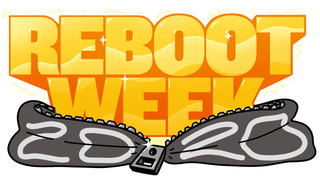 Reboot WeekWe don't have to tell you that 2020 was a terrible year. We can't promise 2021 will be any better, but this week, we're sharing our best strategies to help you reboot your life and start clean.
Reboot WeekWe don't have to tell you that 2020 was a terrible year. We can't promise 2021 will be any better, but this week, we're sharing our best strategies to help you reboot your life and start clean.If you can’t afford a therapist or schedule regular visits with a mental health counselor, you have one one self-soothing method at your disposal that you may have long overlooked, and it won’t cost much at all: journaling.
You may think that journaling simply means jotting down your thoughts at the end of the day—a sort of running log of your emotions, dreams, anxieties and the like—but it can be much more. Journaling with intent can even serve as a form of therapy—albeit one without the hassle of insurance premiums, co-pays, or other red tape.
As we slog into a new year full of aspirations and resolutions, it’s worth knowing there’s a whole world of journaling out there. Your methods of monitoring your own headspace through the written word can be broad or extremely specific—either an assessment of the scattered workings of your psyche, or focused on one particular aspect of your life.
Let’s run through some of the interesting ways you can get the most out of a pen and a pad of paper in 2021.
G/O Media may get a commission
A dream journal
You’ve probably always wanted to decode the mystery of your dreams, but either can’t remember what exactly transpired as you slept, or you haven’t had the bandwidth to sit down and commit to it. This is the time to resolve to keep a dream journal, which will be dedicated entirely to unpacking what your dreams mean.
As the memory of dreams is often fleeting, it’s best to jot down the specifics shortly after you wake. But if you’re able to do this consistently, it can really help with memory retention—also known as dream recall.
A meditation journal
A meditation journal goes in tandem with actual meditation practices, and it’s a fantastic compliment to the practice, whether meditating is something you already do, or you are willing to try out. Though it’s hardly a monolithic pastime, meditating is a great way to declutter your mind and organize your thoughts, and journaling afterward is a good way to contextualize how you’re progressing toward those goals.
A food journal
It’s January, which means you or other people you know are perhaps becoming newly obsessed (or re-obsessed) with your diet. If you’re trying to lose weight or eat healthier, logging your progress in a food journal can help you keep tabs on how well you’re sticking to your plans, as well as log your progress toward your goals. (And note that you can keep a food journal and track what you eat without counting calories.)
A gratitude journal
This is probably the journal everyone needs to consider at some point in their life. It’s probably fair to say you take too much for granted—even during historically bleak times such as these—and it’s easy to lose track of those things we are lucky to have and enjoy. With a gratitude journal, you can condense the things that make you feel fortunate onto each page, which will help you establish and maintain a gracious attitude that will hopefully begin to seep into many aspects of your life and personal relationships.
A creativity journal
The creative process is different for everyone, and you might literally dream up a brilliant idea while drifting off to sleep only to find that it’s vanished in the morning. So why not document your creative sparks for posterity’s sake? It offers a great way to chart the evolution of your creative process, and to help better contextualize ideas that might seem too convoluted or hard to actualize at first.
A reading journal
Too often we read, but don’t reflect on what we’ve learned or how we’ve been challenged. Additionally, if you’re trying to read more this year, just keeping tabs on how much you’re actually reading can be a helpful motivator as you push to make reading a more regular habit. This kind of journal’s benefit is twofold, essentially: On one hand, you’re holding yourself to account when it comes to achieving your bookish goals, and on the other, you can use it as a tool for retaining the information you’re trying to absorb.
from Lifehacker https://ift.tt/38ZTnY6
0 comments:
Post a Comment